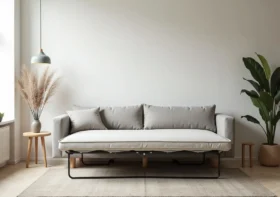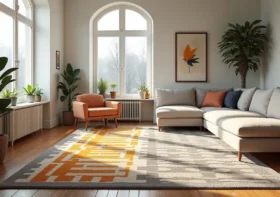The Advantages of Modern Interior Design: Transforming Spaces for Today’s Lifestyle

Modern interior design stands at the powerful intersection of aesthetics and function, redefining the way people experience and relate to their living and working spaces. More than just a passing trend, this design philosophy prioritizes simplicity, efficiency, and a unique sense of personal identity, all while responding to the complex demands of today’s rapidly changing world.
As more homeowners and designers seek environments that balance visual appeal with daily practicality, platforms like Forum Phi serve as prominent examples of how creative expertise and innovation can blend to bridge the gap between beautiful style and functional comfort.
This article highlights the core benefits of modern interior design, emphasizing how intentional layouts, clean lines, and innovative technology can create spacious, adaptable, and inviting environments. These thoughtfully designed spaces support well-being, encourage environmental responsibility, and reflect personal identity, leading to a more fulfilling and sustainable lifestyle.
Contents
The Power of Simplicity in Living Spaces
Minimalism lies at the heart of modern interior design, focusing on eliminating clutter and emphasizing essentials to create clean, functional spaces. By incorporating features such as open layouts, hidden storage, and multipurpose furniture, even compact rooms can feel spacious and serene. This streamlined approach not only enhances aesthetics but also simplifies maintenance and reduces daily stress.
Minimalist interiors also promote mindfulness and a sense of purpose. With fewer distractions, these spaces promote calmness and clarity, enabling residents to focus on work or relaxation. Every design element is carefully chosen, contributing to both utility and long-term adaptability as living needs evolve.
Promoting Well-Being Through Thoughtful Design
Modern interiors are designed to support both mental and physical wellness. Designers utilize natural light, earthy color schemes, and elements such as plants or water features to create serene, nurturing environments. These choices have been shown to offer health benefits, including improved mood, sleep, and air quality. The design fosters a strong connection to nature, even in urban homes. Together, these thoughtful details transform homes into restorative sanctuaries.
Reflecting Personal Identity
Modern design encourages individuals to express themselves through their interiors. Personalized touches, such as custom furniture, meaningful art, or bold colors, add authenticity to a space. Rather than following rigid trends, interiors are tailored to reflect the tastes, values, and lifestyle of their occupants. This personal approach makes homes feel more inspiring and emotionally grounded. As a result, people feel a more profound sense of connection and belonging within their spaces.
Integrating Technology for Smart Living
Technology is seamlessly integrated into modern interiors to enhance ease, efficiency, and comfort. Features such as automated lighting, smart thermostats, and voice assistants are now essential for contemporary living.
According to Investopedia, a smart home utilizes internet-connected devices to enable the remote monitoring and management of systems, including lighting, heating, and security. Notably, these innovations simplify everyday tasks, promote energy efficiency, and blend visually with the design to maintain a sleek, cohesive aesthetic. Smart homes provide dynamic environments that respond intuitively to their users’ needs.
Enhancing Aesthetics with Sustainable Materials
Sustainability is at the heart of modern design, with a focus on eco-friendly and ethically sourced materials. Elements like bamboo, recycled glass, and reclaimed wood are both attractive and environmentally responsible.
These materials add character while supporting long-term environmental goals. Designers also favor timeless colors and textures that adapt well to evolving trends. This approach creates spaces that are stylish, enduring, and environmentally friendly.
Conclusion
Modern interior design is a powerful tool for creating spaces that are both practical and inspiring. It emphasizes well-being, sustainability, and personalization to support today’s dynamic lifestyles. With thoughtful choices, even the most ordinary spaces can become meaningful reflections of their inhabitants. The blend of innovation and intention ensures interiors are as functional as they are beautiful. By embracing this design philosophy, anyone can craft a home that nurtures, adapts, and inspires.



